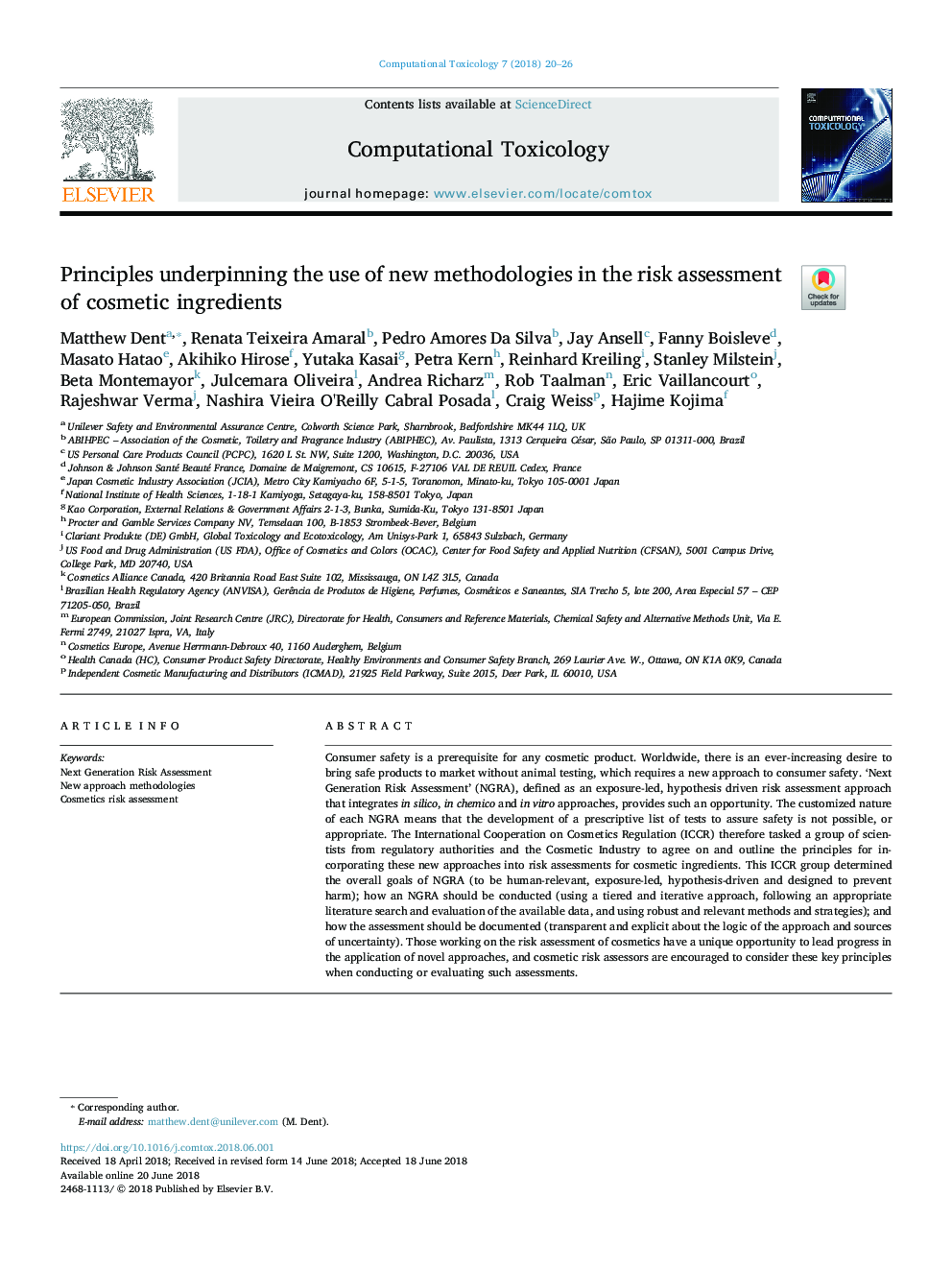| Article ID | Journal | Published Year | Pages | File Type |
|---|---|---|---|---|
| 8376656 | Computational Toxicology | 2018 | 7 Pages |
Abstract
Consumer safety is a prerequisite for any cosmetic product. Worldwide, there is an ever-increasing desire to bring safe products to market without animal testing, which requires a new approach to consumer safety. 'Next Generation Risk Assessment' (NGRA), defined as an exposure-led, hypothesis driven risk assessment approach that integrates in silico, in chemico and in vitro approaches, provides such an opportunity. The customized nature of each NGRA means that the development of a prescriptive list of tests to assure safety is not possible, or appropriate. The International Cooperation on Cosmetics Regulation (ICCR) therefore tasked a group of scientists from regulatory authorities and the Cosmetic Industry to agree on and outline the principles for incorporating these new approaches into risk assessments for cosmetic ingredients. This ICCR group determined the overall goals of NGRA (to be human-relevant, exposure-led, hypothesis-driven and designed to prevent harm); how an NGRA should be conducted (using a tiered and iterative approach, following an appropriate literature search and evaluation of the available data, and using robust and relevant methods and strategies); and how the assessment should be documented (transparent and explicit about the logic of the approach and sources of uncertainty). Those working on the risk assessment of cosmetics have a unique opportunity to lead progress in the application of novel approaches, and cosmetic risk assessors are encouraged to consider these key principles when conducting or evaluating such assessments.
Related Topics
Physical Sciences and Engineering
Mathematics
Computational Mathematics
Authors
Matthew Dent, Renata Teixeira Amaral, Pedro Amores Da Silva, Jay Ansell, Fanny Boisleve, Masato Hatao, Akihiko Hirose, Yutaka Kasai, Petra Kern, Reinhard Kreiling, Stanley Milstein, Beta Montemayor, Julcemara Oliveira, Andrea Richarz, Rob Taalman,
